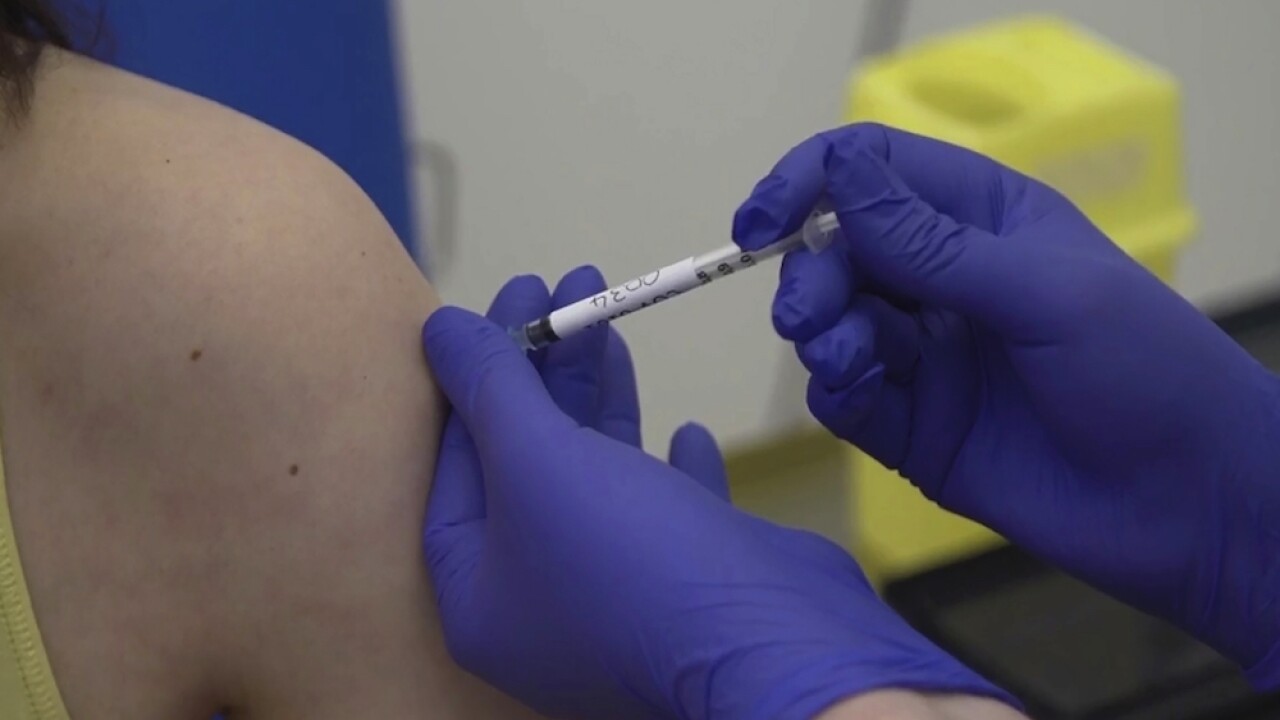(WXYZ) — The COVID-19 vaccines coming to market from Pfizer and Moderna, both of which have asked for emergency use authorization from the FDA, must be stored at cold temperatures. Pfizer's specifically, for long-term storage must be in temperatures colder than Antarctica in the winter.
The vaccines are anticipated to be available sometime this month, and local health departments are preparing. At least four counties in metro Detroit already have the special ultra-low temperature freezers necessary for vaccine storage.
“We have ordered ten of them and we expect delivery really any day now," Oakland County Executive Dave Coulter told 7 Action News.
Oakland County is spending close to $140,000 of its Cares Act reimbursement on the freezers, which can drop to almost -90 degrees Celsius.
Coulter says @OakGov's 10 ultra low temperature freezers should be arriving any day now. The county used CARES Act money (nearly $140,000) to pay for them. Coutler says they were ordered back in October @wxyzdetroit
— Jenn Schanz (@JennSchanzWXYZ) December 1, 2020
Macomb County has three ultra-cold freezers, also bought with Cares Act Money for between $10,000 and $15,000 each; two additional freezers are on the way.
“We’re going to store as many as we can in the various units that we have throughout the county. We’re going to be helping out other health departments too," said Macomb County Executive Mark Hackel.
Washtenaw County has one ultra-low temperature freezer provided by the state health department, said Washtenaw County Health Department public information officer, Susan Ringler-Cerniglia. The county is also expecting another freezer by the middle of December, she said.
"That funding often has to go through the normal channels and be approved however it’s allocated," Ringler-Cerniglia told Action News. " We don't actually know how much we might get or when that might be available. So we kind of have to plan assuming that we’ll have the funds to distribute."
Like Macomb, Washtenaw County is planning to store vaccines for others in the region. They're preparing "to-go" kits with supplies to effectively store and vaccinate off-site, according to Ringler-Cerniglia.
Wayne County, which is a different health department jurisdiction than the City of Detroit, already has one ultra-low temperature freezer. It was provided by the state's health department according to Michael McElrath, the county's communications and community outreach director.
McElrath said Wayne County has also ordered another freezer, which has yet to arrive.
Statewide at least 31 hospitals, including those within the Henry Ford Health System, and 11 local health departments have ultra-cold freezers to store vaccines, according to MDHHS spokesperson Lynn Sutfin.
Vaccines will be shipped in dry ice, however, it's expected the vaccine will be distributed quickly after it's received, meaning that not all facilities will need specialized freezers.
Right now municipalities still don't know exactly how many doses of the vaccine they'll be issued once it's rolled out.
"The state has some indication and has given us some idea. And the bottom line is, it’s going to start out slower than we need and ramp up over time," said Coulter. “We’ll have to get our healthcare workers, our first-responders and the like vaccinated first.”
Coulter said Oakland County's first shipment of the vaccine could come by the end of December.
City of Detroit Mayor Mike Duggan has said the city will need to vaccinate 5,000 people a day; he too said front line workers would be first to receive the vaccine.
According to Sutfin, the final recommendations from the CDC as to who should receive the vaccine first have not been shared yet. She said it's anticipated first priority will be given to healthcare and frontline workers, those working or living in congregate care facilities, people over 65, and those with underlying medical conditions.
Additional Coronavirus information and resources:
Click here for a page with resources including a COVID-19 overview from the CDC, details on cases in Michigan, a timeline of Governor Gretchen Whitmer's orders since the outbreak, coronavirus' impact on Southeast Michigan, and links to more information from the Michigan Department of Health and Human Services, the CDC and the WHO.
View a global coronavirus tracker with data from Johns Hopkins University.
See complete coverage on our Coronavirus Continuing Coverage page.
Visit our The Rebound Detroit, a place where we are working to help people impacted financially from the coronavirus. We have all the information on everything available to help you through this crisis and how to access it.



